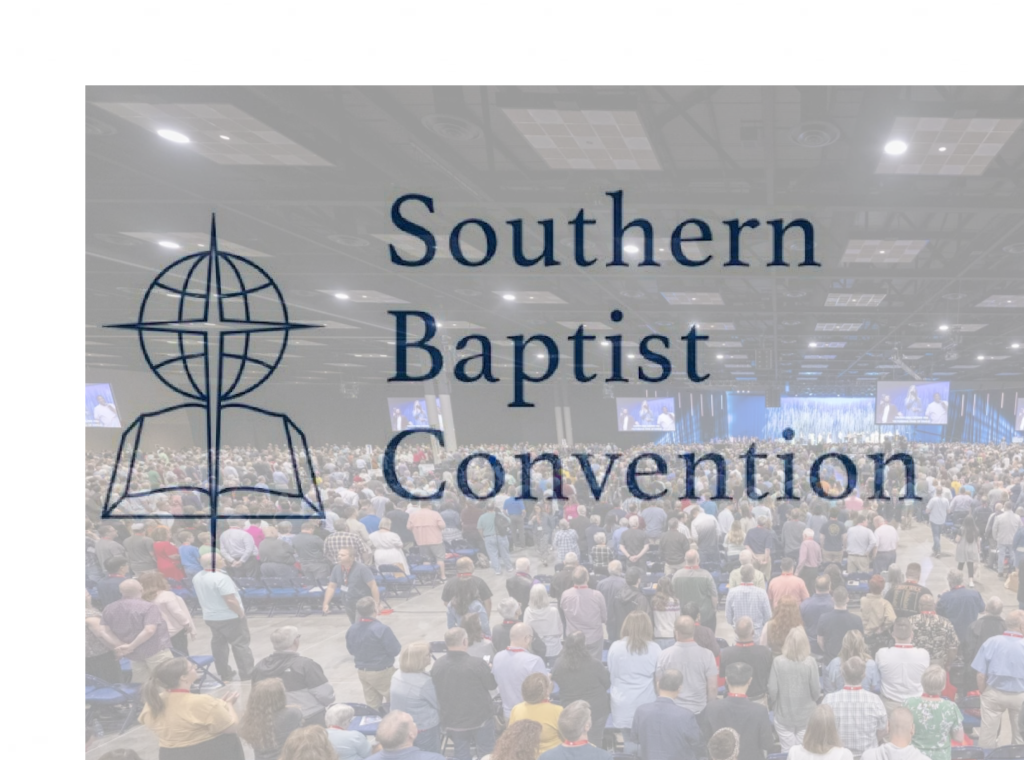In a significant decision, the Southern Baptist Convention (SBC) recently voted against a proposed constitutional amendment that would have banned women from serving as pastors within its affiliated churches. This vote, which took place during the SBC’s annual meeting in Indianapolis, marked a critical moment for the denomination, highlighting ongoing debates over gender roles, church governance, and theological interpretation.
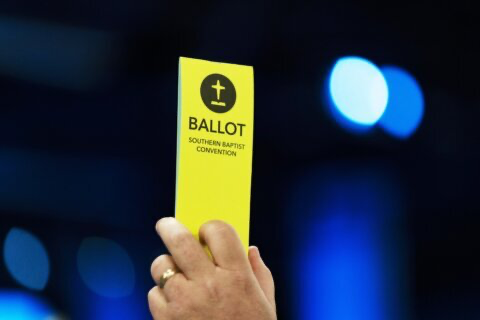
The proposed amendment aimed to enshrine in the SBC constitution a rule that only men could serve as pastors, a stance proponents argued was in line with biblical teachings. Advocates for the ban cited verses from 1 Timothy, which they interpret as prohibiting women from holding pastoral authority over men. They expressed concerns that failing to adopt this amendment would lead to further liberalization of the denomination’s practices, potentially extending to issues like same-sex marriage and LGBTQ+ clergy.
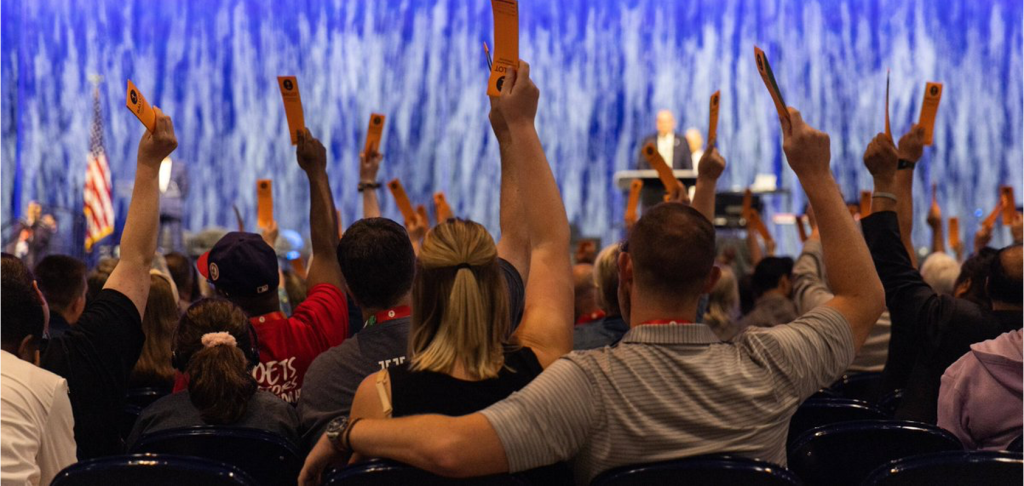
However, the amendment faced substantial opposition from various quarters within the SBC. Critics, including numerous Black clergy and other leaders, argued that the move would undermine the autonomy of local churches, a core Baptist principle. They pointed out that many SBC churches, particularly those with diverse congregations, already have women serving in pastoral roles, often in capacities such as ministers for children or worship.
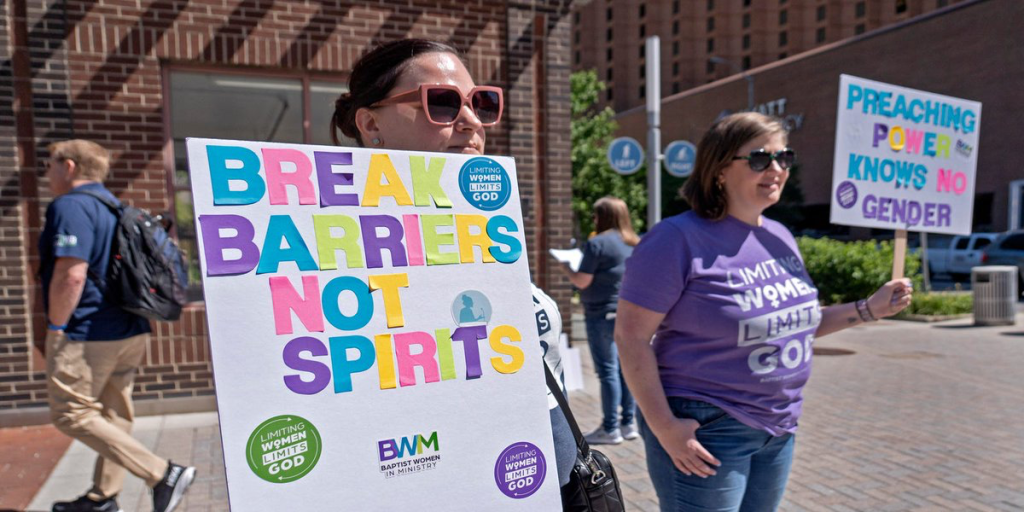
Opponents also raised concerns about the practical implications of enforcing such a ban. The SBC’s Executive Committee, among other groups, warned that the amendment would lead to a bureaucratic quagmire, with the convention’s resources being drained by constant investigations into church practices. There were also fears that the amendment would exacerbate the denomination’s ongoing struggles, including declining membership and unresolved issues related to sexual abuse scandals.
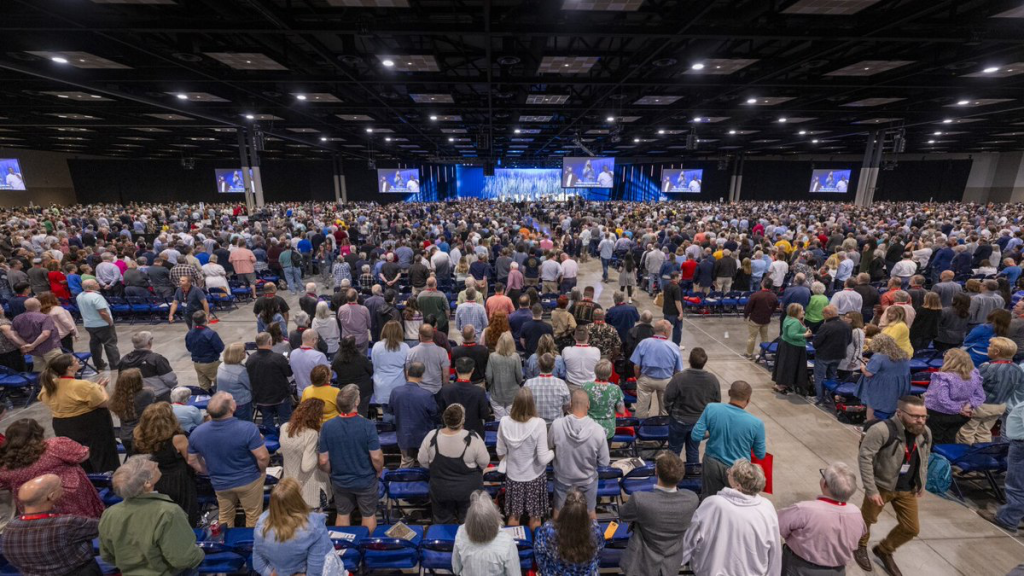
The debate has also had a significant cultural dimension. Many within the SBC see the push for the ban as part of a broader rightward shift in the denomination, one that could alienate more progressive and moderate members. This shift has already prompted some churches to leave the SBC voluntarily, while others, such as the influential Saddleback Church in California, were ousted due to their inclusive practices concerning women pastors.
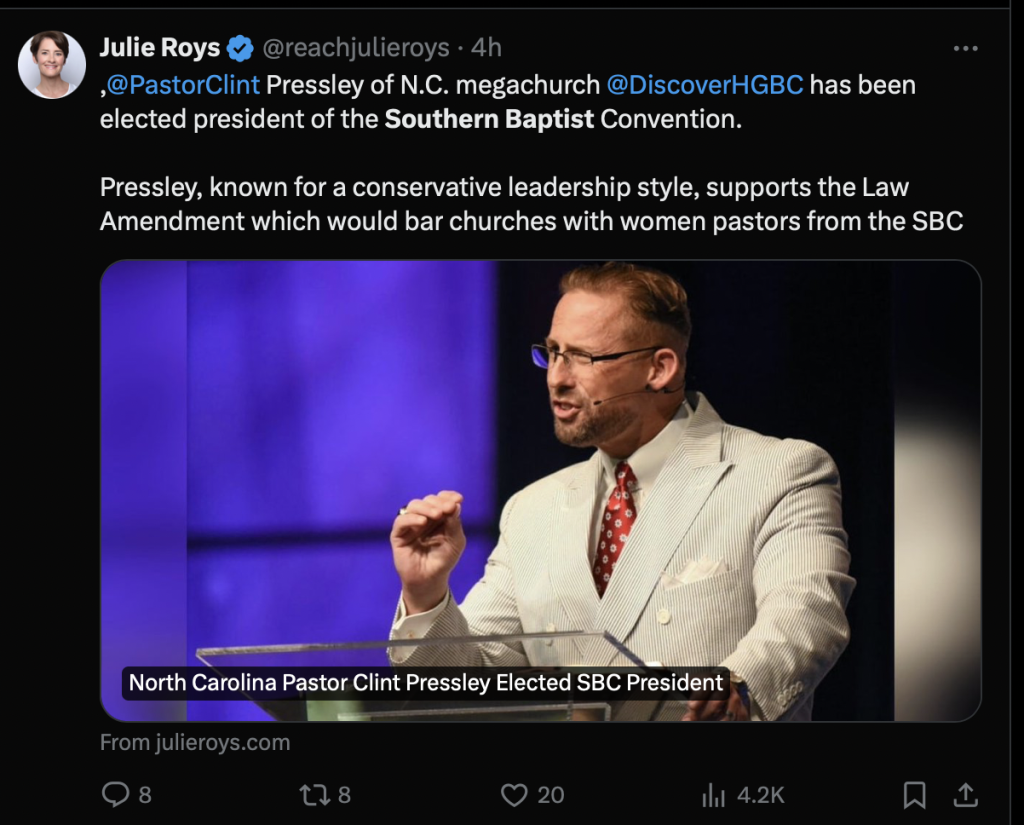
Leaders like Pastor Gregory Perkins, president of the SBC’s National African American Fellowship, emphasized that local churches should retain the right to determine their own governance and pastoral appointments. He, along with other leaders, expressed optimism that the SBC messengers would respect this autonomy and avoid making divisive changes to the denomination’s constitution.
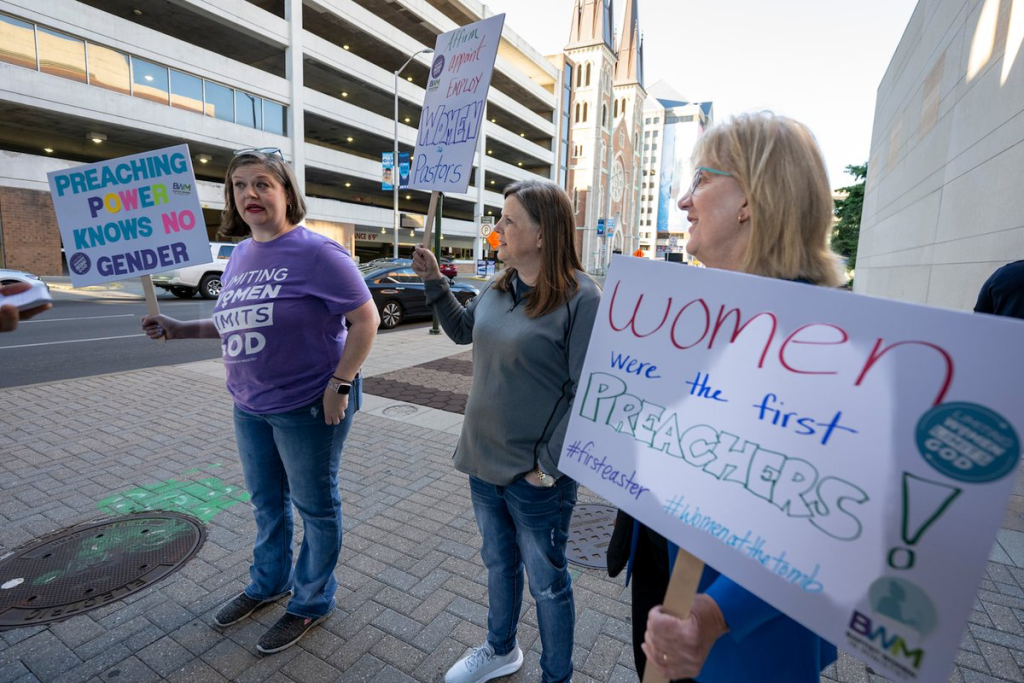
In response to the controversy, organizations supporting women in ministry, such as Baptist Women in Ministry, have ramped up their advocacy efforts. They have been providing support to women pastors within the SBC and raising awareness about the contributions of women in ministry through initiatives like the documentary “Midwives of a Movement”.
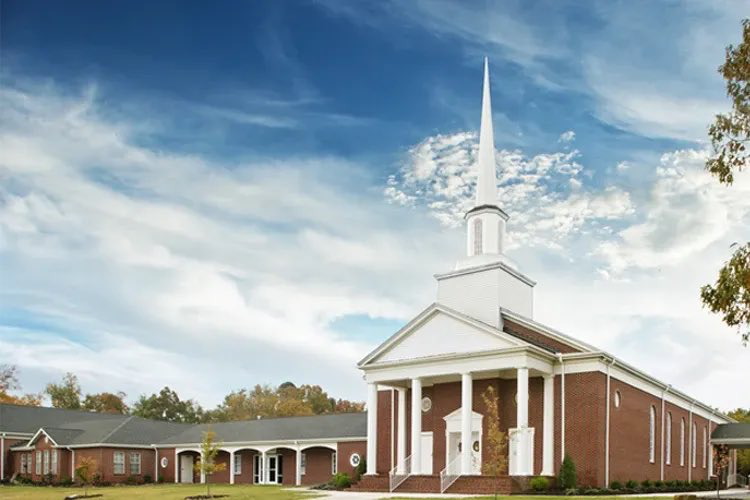
Source X
Ultimately, the rejection of the ban reflects a complex and ongoing struggle within the Southern Baptist Convention over identity, tradition, and the role of women in church. Clearly the majority of voters want men in positions of power, even if it wasn’t the two thirds required to make the change happen.
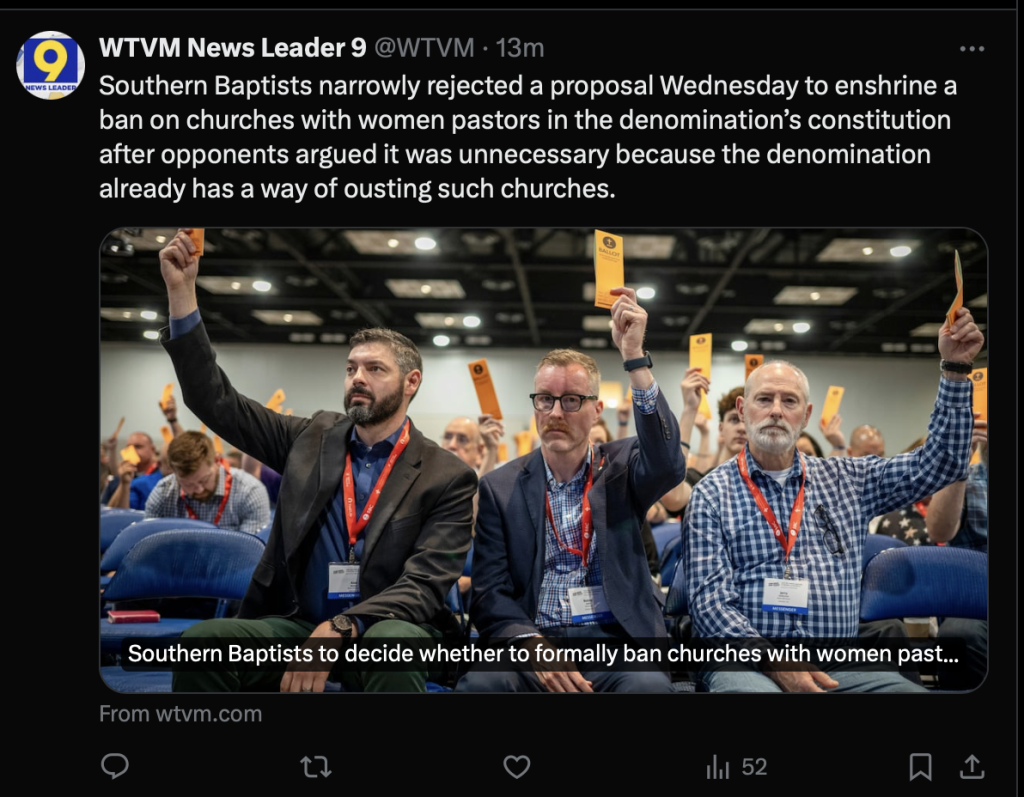
This decision underscores the broader debates within Christianity over how to interpret scripture and balance doctrinal purity with inclusivity and change. But the more important question is, do they even want change, or do the Baptists want to revert further into the past?
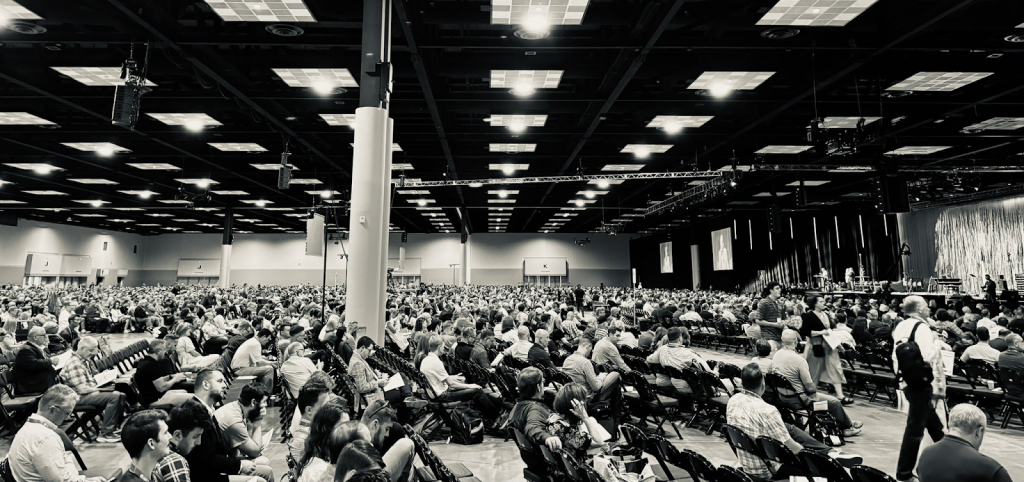
Source: X
Sixty-one percent of voters voted for the ban of women pastor’s, not the sixty-six percent needed to enforce the ban officially. But as history has shown, oppressing women takes many forms, especially in the church.

